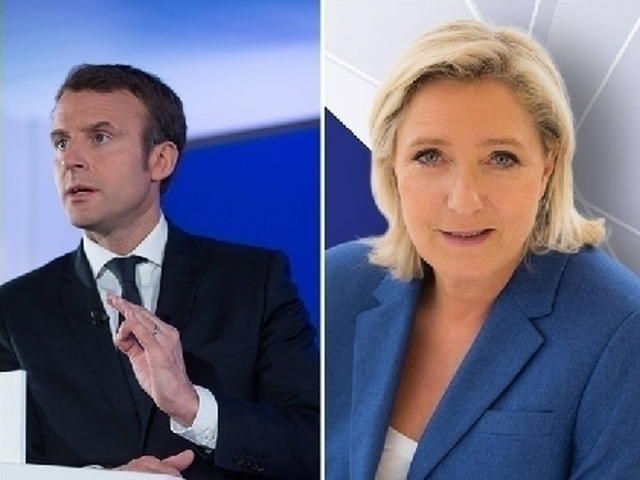The elections in France – what is at stake?
Will the presidential election in France bring any change to the European political paradigm?

Corina Cristea, 05.05.2017, 12:50
Centrist Emmanuel Macron, leader of the En Marche! movement, set up only a year ago, and Marine Le Pen, the representative of the far-right National Front, face off in the second round of elections in France for the presidency. Analysts provide a simple explanation for this: a confused election campaign in a country where the traditional political parties don’t fare that well, at a time when the Western world undergoes profound changes, where institutions are at a disadvantage in terms of political evolutions and the evolution of society.
Shortly after finding out the results of the first round of the presidential elections, Emmanuel Macron said that he wanted to build a governing majority to change things. He said it would be made up of new faces and new talent, with opening towards anyone. He said that he would not ask where people are from, but if they agree to refresh political life, securing a decent life for the French people, allowing everyone to progress in society, irrespective of their place of origin, if they agree to the idea of a European construction.
Marine Le Pen, who opposes a united Europe, continued their election campaign by telling French voters that they are faced with a historic opportunity. The stakes of this election, she says, is globalization without rules, which endangers civilization. The French have a simple choice, she said, to either continue on the same path, without borders and without protection, the consequence being outsourcing jobs, unfair international competition, mass migration, and the free circulation of terrorists. Her counter-proposal is protecting jobs, purchasing power, as well as national security and identity.
Analyzing this first round of elections, Valentin Naumescu, a professor with the Babes-Bolyai University of Cluj, hailed the fact that Emmanuel Macron, the pro-European candidate, won the first round of the elections, which makes it very likely that he will become the next president of the French republic on May 7:
“This new French presidency will still be engaged with the EU, and within the broad strokes of liberal democracy. That is the good news. If we look closer, however, we notice that the two biggest post-war parties in France, the republicans and the socialists, have lost popular support, democratic support, since for the first time in the history of the fifth republic they didn’t manage to field a candidate that makes it to the second round. This is a sign that we are witnessing a certain type of political polarization, on a new axis. So far, the axis of political polarization is center right to center left, with extremes under 10% and with insignificant center parties. Now we are seeing a spectacular shift of the political rift, between extreme parties, on the one hand, to center parties, on the other. It is a political and ideological polarization, of various sets of values, but this is a rise in extremism, in populism, in anti-European nationalist movements, be they on the left or the right, which have naturally fed a reaction from the rational, decent majority of the French democratic group. This is an unhoped for opportunity for the pro-European liberal political center to reinvent itself and to get into the competition, hopefully a winning one, against the French extreme right.
The ascent and consolidation of extremism results in the natural reaction to mobilize the rational majority to vote, according to Valentin Naumescu:
“I am not optimistic enough to say that the anti-European populist wave has passed. It has not, it is at the highest level in post-war Europe, but fortunately it does not have critical mass in order to win elections. This is the full part of the glass.
According to Valentin Naumescu, this may be the most important signal sent by the presidential elections in France, the fact that a major part of French society, fortunately still in the majority, wishes to defend its values, just like the Dutch did on March 15, when the voter turnout was 83%. In the first round of elections in France, on April 23, the turnout was almost 80%. These are examples of political and civic engagement, showing that the battle is not yet lost, according to Valentin Naumescu. What is certain is the fact that, given the international context, the presidential elections in France may be the most important in the last few decades. The French are not as much electing their president, as choosing their path and that of the European Union. (Translated by C. Cotoiu)






























